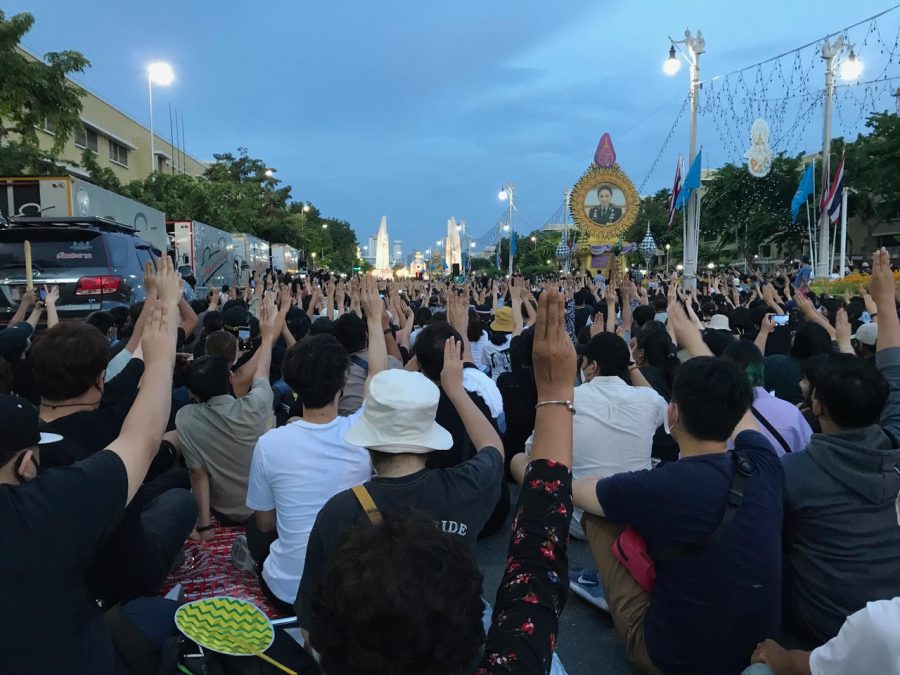Pro-Democracy Protests in Thailand Create National Divide
“Resign, Rewrite, Reform”
Since 1932, Thailand’s government has operated under a constitutional monarchy, although its structure has never found long-lasting stability. Thus, the military has played a significant role in Thai politics, having led multiple successful coup’d’étâts against the elected officials.
The army set up the current system during the last successful coup. It involves a strict lèse-majésté law—which can sentence protestors up to 15 years in federal prison for speaking or acting out against essential members of the royal family—as well as other laws that limit freedom of speech.
Over the course of several months, numerous protests have broken out in Thailand, demanding a reform of the Thai government. Students led the initial protests in July to revolt against military influence in the classroom, although their initiative has grown to encompass a broader set of demands.
The pro-democracy protestors are calling for a new Constitution—and limits to the monarchy—as well as for the resignation of current Prime Minister Prayuth Chan-o-cha, giving the movement the slogan “Resign, Rewrite, Reform.”
This movement is one of the biggest challenges to the Thai government that the country has seen. In November, Thailand’s Congress, composed of the elected House of Representatives and military-appointed Senate, proposed discussing the constitutional change within the government system, as long as the monarchy remains unchanged. However, the movement did not accept these terms, and no substantial progress has been made during the protests.
Protesters, who gathered outside of the Thai parliament in Bangkok, repeatedly clashed with police, and some of the protests turned violent. Water cannons, tear-gas solutions, and rubber bullets were unleashed upon present protestors during the months-long movement, leading to many sustained injuries among police and protestors. During the demonstrations, the courts charged at least 35 protestors with defamation against the royal family.
Nonetheless, after five months of relentless demonstrations, the Thai government has yet to establish an amendment. The protestors are currently “taking a break” for the rest of the winter season but promised to return in 2021 with renewed fervor.
As the Thai continue to plan future demonstrations, their government banned demonstrations in a national lock-down “due to an uptick in COVID-19 cases.” Now, we have to wait and see the outcome of the following demonstrations.

Kaelyn Klatte, a junior at Harriton, has been writing for The Harriton Banner since freshman year. An avid science fan, active Cross Country/track athlete,...



